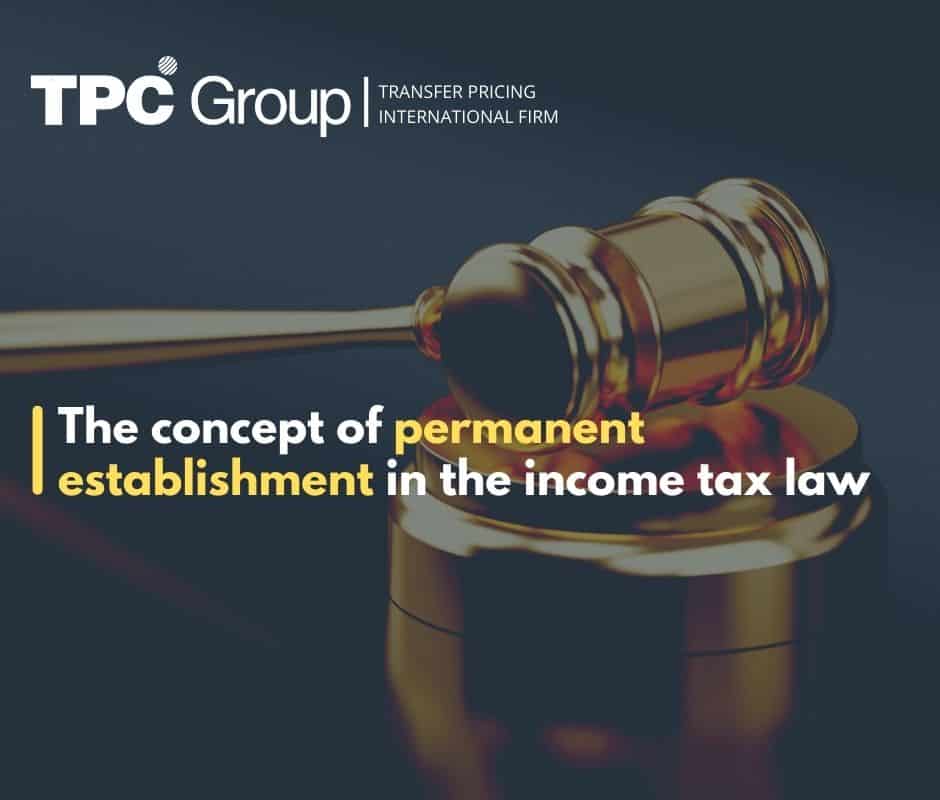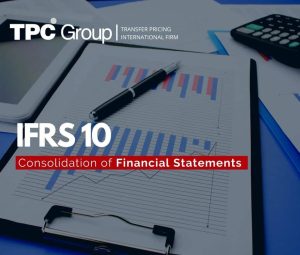The treatment of the Permanent Establishment (hereinafter PE) is, perhaps, one of the most important points in international taxation because only non-domiciled entities not qualifying as PE will be taxed in the country of residence, according to the legislation of the country of the source. In this regard, it is essential to delimit correctly and know under what circumstances it qualifies or does not as a PE.
The Legislative Decree No. 1424, effective as of January 1, 2019, introduced a definition for the concept of PE in the Income Tax Law. Indeed, although the concept of PE is mentioned in the Income Tax Law in Articles 7 and 14 related to the domicile for tax purposes and the condition of taxpayers, such regulation did not define the prior nor current procedures to generate a PE in the country of foreign entities.
As of the fiscal year 2019, this situation has changed, having been incorporated through Legislative Decree No. 1424, Article 14-B to the Income Tax Law, which expressly establishes the cases of PE.
“Article 14°-B.- For this Law, a permanent establishment is considered:
- Any fixed place of business through which a unipersonal enterprise, corporation, or entity of any nature constituted abroad develops totally or partially its activities. As long as the activity is carried out under the above provisions the management headquarters, branches, agencies, offices, factories, workshops, warehouses, stores, mines, oil or gas wells, quarries, or any other fixed or mobile place, facility, or structure used in the exploration, exploitation, or extraction of natural resources constitute permanent establishments.
- Construction, installation, or assembly works or projects, as well as the supervision activities related thereto, when their duration exceeds one hundred eighty-three (183) calendar days within any twelve (12) month period, unless a shorter term has been established in the Double Taxation Avoidance Agreements, whose case will be the applicable term.
- The rendering of services, when performed in the country for the same project, service, or similar for a period( s) exceeding one hundred eighty-three (183) calendar days in total within any twelve (12) month period, unless a shorter period has been established in the Double Taxation Avoidance Agreements, whose case will be the applicable period.
- When a person acts in the country on behalf of a unipersonal enterprise, corporation, or entity of any nature incorporated abroad to conclude contracts or to perform the main role in the conclusion of contracts routinely entered into without substantial modification by the unipersonal enterprise, corporation, or entity of any nature incorporated abroad and such contracts are entered into: (i) on behalf thereof, ( ii) to transfer the ownership right or the right to use their property or over the right to use property thereof or which they have the right to use, or (iii) for the provision of their services.
Notwithstanding the provisions of paragraphs 1 and 4 of the preceding paragraph, a permanent establishment is not considered to exist when the work performed is a preparatory or auxiliary activity. An auxiliary or preparatory activity is dispensable for the activities of the unipersonal enterprise, company, or entity of any nature incorporated abroad unless such activity along with others carried out in the country by the former and/or its related parties constitute complementary functions forming part of the operation of a cohesive business.
To determine whether the cases of permanent establishment referred to in paragraphs 2 and 3 of this Article are configured, the period(s) the unipersonal enterprise, company, or entity of any nature constituted abroad performs the activities mentioned in said paragraphs shall be added to the period(s) the parties related to this one perform identical, substantially similar, or related activities.
The provisions of paragraph 4 of this article do not apply when the person acting on behalf of the sole proprietorship, partnership, or entity of any nature incorporated abroad performs an economic activity in the country as an independent agent and acts on its behalf in the ordinary course of such activity. However, a person shall not be considered as an independent agent for purposes of this paragraph when, among others: i) performs more than 80% of its activities on behalf of the unipersonal enterprise, corporation, or entity of any nature incorporated abroad, having agreed or imposed conditions in its commercial and financial relations with it that differ from those that would have been agreed between independent parties, or ii) performs more than 80% of its activities on behalf of one or more unipersonal enterprises, corporations, or entities of any nature incorporated abroad with which it is related.
A unipersonal enterprise, company, or entity of any nature incorporated abroad is considered to have several permanent establishments when it has in the country several fixed business places or performs in the country clearly distinguishable activities, which independently meet the requirements to qualify as permanent establishments, provided that their management is carried out separately. If so, each permanent establishment shall have the status of the taxpayer of the tax under the provisions of Article 14 of this Law and shall be taxed independently.
For the provisions of this Article, the linkage shall be determined under the provisions of paragraph b) of Article 32-A of this Law”.
As we can see, among the main novelties introduced in the Income Tax Law regarding PE are the following:
Temporary establishments
Under this concept, two PE assumptions have been introduced:
(a) Construction, installation, or assembly works or projects, as well as supervision activities related to those, when their duration exceeds one hundred eighty-three (183) calendar days within any twelve (12) month period. This is the case of the Agreement signed between Peru and Mexico establishing a term of ninety (90) days in the case of technical assistance; and
(b) The rendering of services, when performed in the country for the same or a related project or service for a period ( s) exceeding one hundred eighty-three (183) calendar days in total within any twelve (12) month period.
In both cases, the regulation has indicated that if a shorter period has been established in the DTAs, such a shorter period will be the applicable one. In addition, it has been specified that to determine whether the PE in question is configured, the period ( s) the unipersonal corporation, company, or entity of any nature incorporated abroad performs the referred activities will be added to the period(s) the related parties carry out identical, substantially similar, or related activities.
Fixed business place
The Law considers as permanent establishment any fixed business place through which a unipersonal enterprise, corporation, or entity of any nature incorporated abroad (hereinafter “foreign enterprise or entity”) develops, totally or partially, its activities.
Permanent establishments also include head offices, branches, agencies, offices, factories, workshops, warehouses, stores, as long as the foreign company or entity carries out its activities in such establishments, as well as mines, oil or gas wells, quarries, or any other fixed or mobile place, installation or structure used in the exploration, exploitation or extraction of natural resources.
Preparatory or auxiliary activities
According to the definition of the Regulations, the maintenance in Peru of (i) goods or merchandise for the exclusive purpose of storage or exhibition, or use of facilities intended for such activities, or (ii) fixed place dedicated exclusively to the purchase of goods or merchandise for their supply or the gathering of information, or to carry out any other preparatory or auxiliary activity, does not constitute a permanent establishment of the foreign company or entity.
Article 14-B of the Income Tax Law has maintained the exception of the configuration of a PE in the case of the performance of preparatory or auxiliary activities. However, the Law has gone a step further by stating that ” A preparatory or auxiliary activity is considered when it is dispensable from the activities of the unipersonal company, corporation, or entity of any nature incorporated abroad unless such activity jointly with others developed in the country by the former and/or its related parties constitute complementary functions forming part of the operation of a cohesive business.”
As can be seen, the regulation has intended to give some content to the concept of ” preparatory or auxiliary activities” by outlining a definition of this concept – everything that is dispensable for the activities of the entity, which could also be confusing. The regulation has also indicated that even in the case of activities of a preparatory or auxiliary nature, a PE could be configured when these are carried out jointly with other activities in the country developed by the foreign entity or its related parties and forming part of a cohesive business, being complementary functions.
Dependent agent
The Regulations provide as a permanent establishment for a person who has the powers to enter into contracts in the country on behalf of a foreign enterprise or entity, exercising them habitually therein, or habitually maintains in the country stocks of goods or merchandise to be traded therein on behalf of the enterprise or entity.
Under the Income Tax Law amendment, a permanent establishment will also exist when a person acts in the country on behalf of a foreign company or entity and habitually plays the main role in the conclusion of contracts, but not only when concluding such contracts, provided that these are routinely entered into by the foreign company or entity without substantial modification by the latter, being such contracts entered into (a) On behalf of the foreign enterprise or entity, or (b) to transfer ownership or use rights over assets of the enterprise, foreign entity, or over which it has the right to use, or (c) for the rendering of services by such enterprise or entity.
Independent Agent
The Regulation states that it will not constitute a permanent establishment when the company or foreign entity carries out commercial operations in the country through a broker, general commission agent, or any other independent representative, provided that they act as such in the usual performance of their activities. However, if the representative performs more than 80% of its activities on behalf of the foreign company, it will not be considered as such. The Income Tax Law amendment adds as a requirement that between commercial and financial relationships, the conditions differ from those that would have been agreed between independent parties.
The amendment of the Law adds that an independent agent performing more than 80% of its activities on behalf of one or more companies or foreign entities with which it is related will also constitute a permanent establishment.
The Law adds that the period(s) in which parties related to it carry out identical, substantially similar, or related activities will be added to determine the existence of the permanent establishment.



